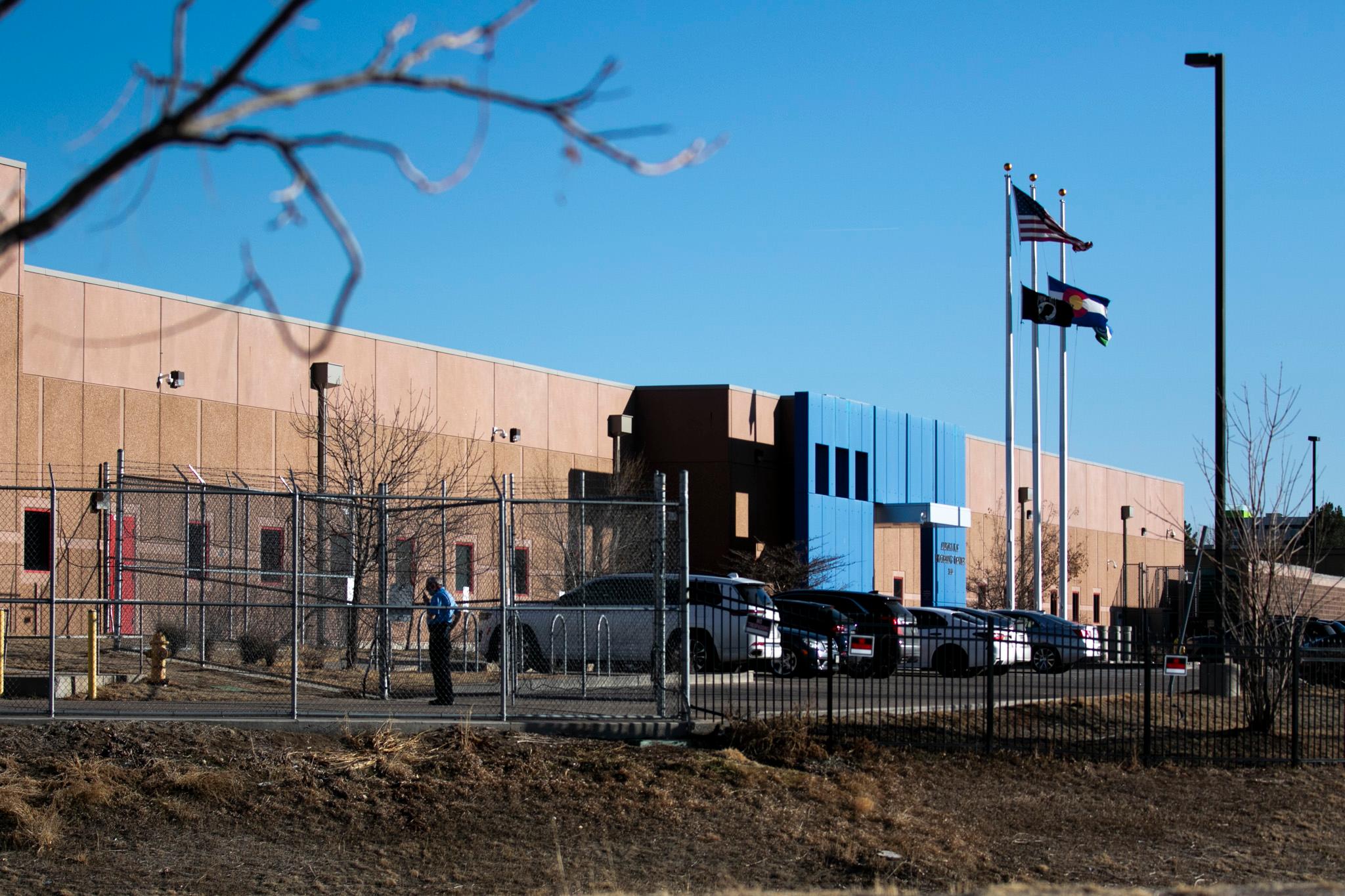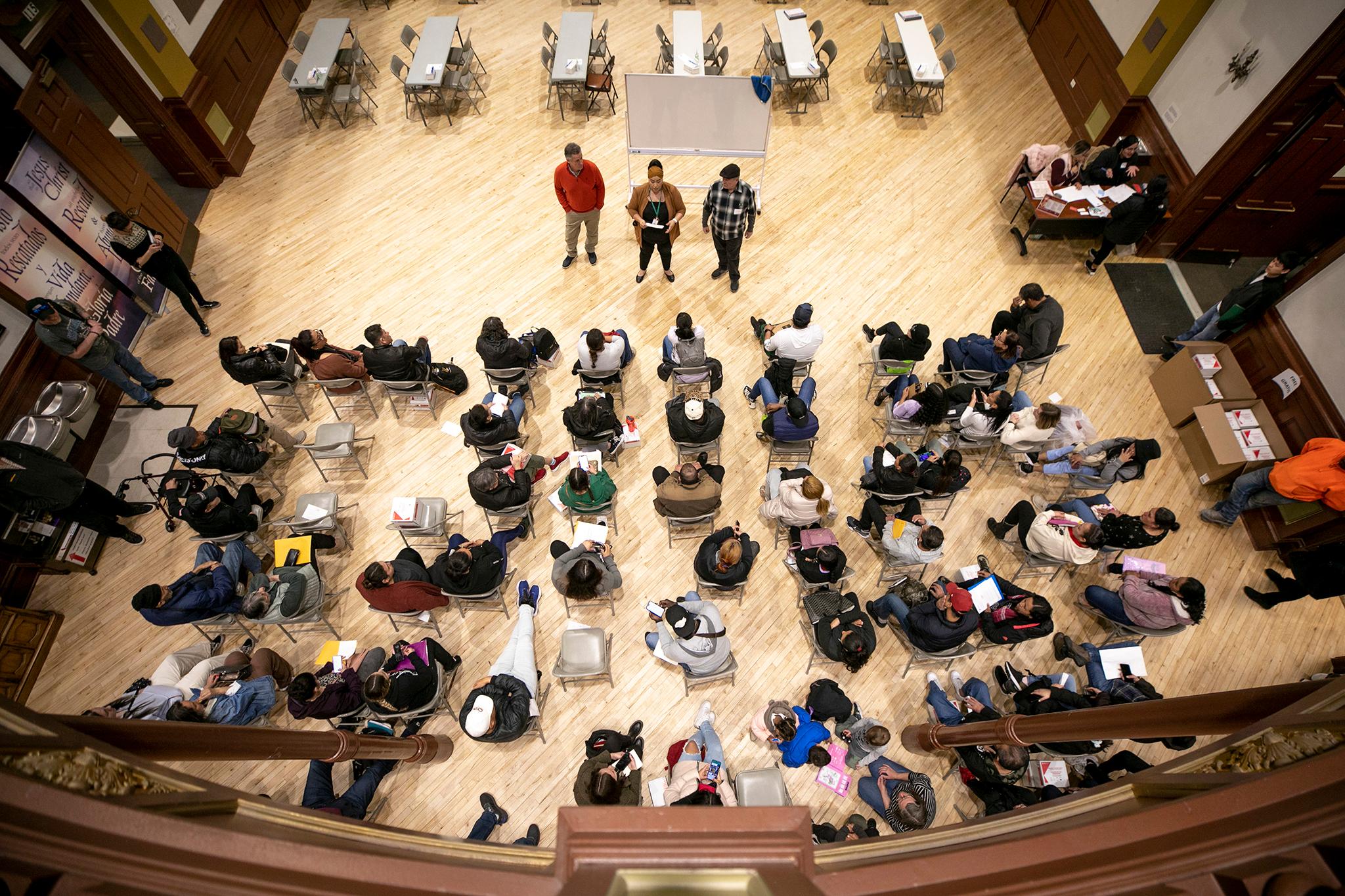
People in the U.S. disagree a lot about immigration. It’s a central issue in national politics right now, and it’s dividing Colorado communities. Across the political spectrum, though, people acknowledge that the current U.S. immigration system is not working.
Denver attorney and professor César Cuauhtémoc García Hernández reimagines the system in a new book, ‘Welcome the Wretched: In Defense of the “Criminal Alien,”’ released Jan. 30.
García Hernández, who’s from Texas, questions why the U.S. continues to try to police its way out of the current situation, where record numbers of people have immigrated to the U.S. without prior authorization.
Republicans and Democrats alike have built the current system that criminalizes immigration and immigrants with a focus on the detention, deportation, and exclusion of people who want to come to the country. In particular, it’s common to hear politicians from both major political parties say that people with criminal records should be targeted for deportation, even if the only crime they committed was to walk across the border.
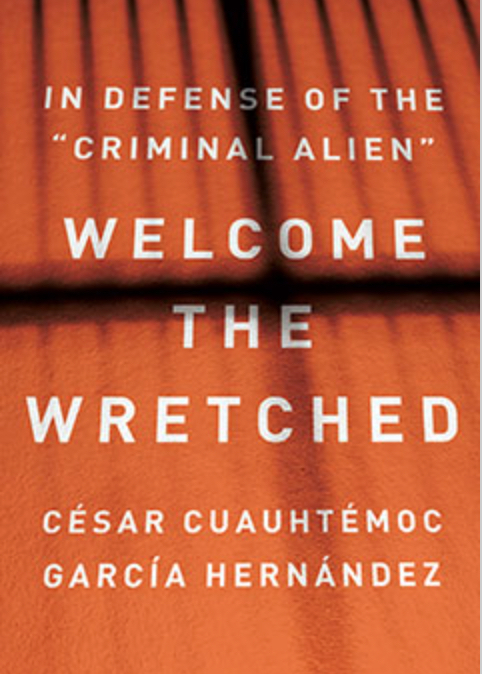
U.S. immigration laws were not always oriented in this way. In his book, García Hernández imagines an immigration system that allows more people to come legally, which would treat immigrants more humanely and equitably, and would increase the economic output of the country while addressing long-term trends in labor participation driven by falling birth rates.
He knows his proposal is far outside the current political discourse. A recent compromise bill between Congressional Republicans and Democrats, which had the support of President Joe Biden, would have doubled down on policing, detention, and deportation and made it more difficult for people to get asylum.
But the Denver author believes his proposals are more realistic than what exists in the country right now.
“If the solution to controlling migration was to be found in spending more money on more law enforcement officers and more technology then we would've paid for the solution a long time ago, and we haven't,” García Hernández said.
“What I hope that politicians will do is have the political courage to reimagine the policy options that they continue to debate over and over again,” he said.
He said both Democrats and Republicans have successfully used immigration as a campaign issue. “If we actually took a more creative, innovative approach to migration policy in which people could get to the United States in a much more orderly and safer fashion, immigration would just become boring.”
García Hernández spoke with Colorado Matters host Ryan Warner about what the alternative test for citizenship should be, whether the paradigm shift that he imagines could ever become reality in the U.S., and the unique role Denver and Colorado could play to help alleviate the current crisis.
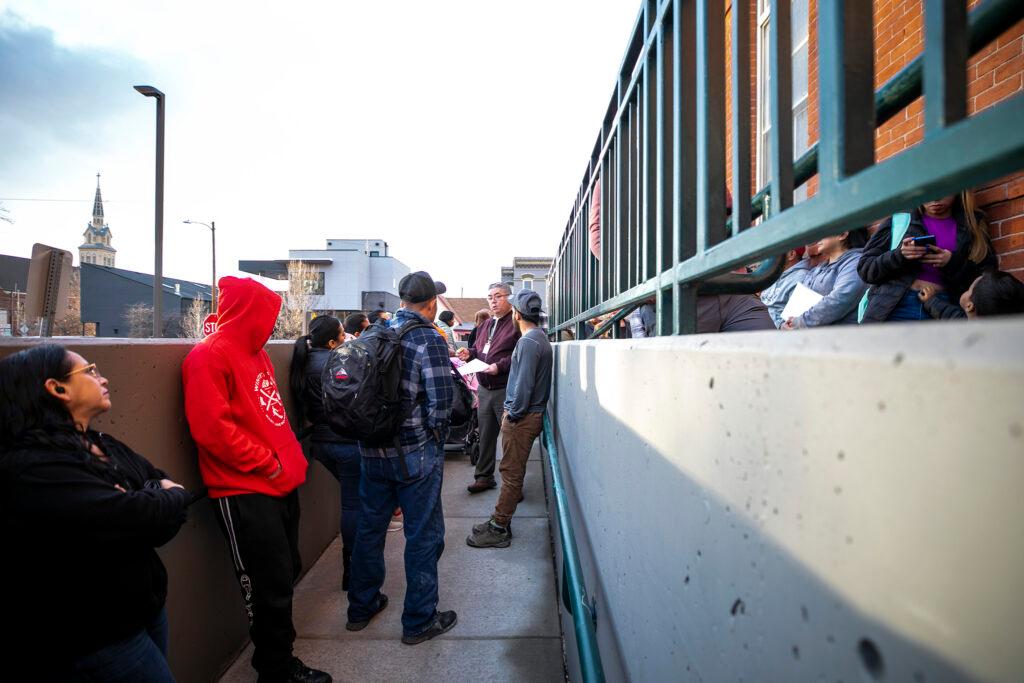
Read the interview
This transcript of their interview has been edited for length and clarity.
Ryan Warner: Could you lay out the basic idea you're proposing?
César Cuauhtémoc García Hernández: We like to imagine ourselves as being the City on a Hill, the exceptional country founded by extraordinary people. But in reality, we're just ordinary human beings. We have our fine moments – we are a community of people that rises to the occasion. And we're also a community of people who mess up.
Warner: I guess you are taking exception to American exceptionalism.
García Hernández: That's right. If we imagine ourselves as being the exceptional human beings that we have never been, then of course we should set that as the minimum bar to making a life in the United States for folks who want to come here and do exactly that.
Immigration law describes migrants as aliens, and of course, if they were actually aliens, then it would make complete sense to treat them to exceptional standards. But in reality, they're just human beings.
Warner: You tell a story in the book of Robert E. Lee and say, essentially, that this book is all about the people who are as worthy as he is of being US citizens. Help us understand this idea.
García Hernández: Right, the Confederate general — the man whose claim to fame is to have led the military to literally destroy the United States of America. As with many leaders of the Confederacy, Robert E. Lee decided that he would disown the United States in favor of the Confederate States of America. And when the country to whom he pledged his allegiance and claimed citizenship failed, he was left stateless, essentially.
About a century later, in the 1970s, Congress decided to pass a law restoring Robert E. Lee to his full US citizenship. On the house floor, a member of Congress from Virginia asked the question, “If Robert E. Lee is not fit for U.S. citizenship, then who is?" And my response is, "If Robert E. Lee is fit for US citizenship, then there's a whole lot of people who are and who right now are actually being targeted by immigration law for failures that are true but much less severe than literally attacking the United States of America."
Warner: Do U.S. politicians today focus on enforcement and ways to keep people out of the U.S. because one party has pushed policy and discourse in that direction, or did the country get to this point because of both Republicans and Democrats?
García Hernández: I certainly won't say that there's no difference when it comes to Republicans and Democrats, or that there's no difference between Donald Trump and Joe Biden. There is a difference, of course, like the rhetoric and Trump’s abrasiveness. But when it comes to their policies, Republicans and Democrats have united forces over the last several decades to ensure immigration law treats basically any run-in with the criminal legal system as one too many. As a result, people across Denver and across the United States every single day are finding themselves in immigration detention and facing the prospect of deportation for failures that are much less severe than Robert E. Lee’s, or much less severe than what we've seen in the past.
Warner: In the book, you point to the criminalization of immigration under Bill Clinton, a Democrat. In the 1995 State of the Union address, he said “All Americans… are rightly disturbed by the large numbers of illegal aliens entering our country.” He described how he wanted to deport more people and punish those who employ unauthorized immigrants. His speech shows how Democrats have also framed immigrants and immigration as a threat, and doubled down on policing as a solution.
García Hernández: There is room for lawbreakers in the United States, whether we're talking about the folks who are in the highest elected offices in the country or whether we're talking about people in our own families. I've been on college campuses most of my adult life, and it's no secret that there's plenty of crime happening in college dorms and every university and college campus in this country.
As somebody who is intimately familiar with the reality of sexual violence in universities across the United States, it strikes me as ironic that we hear politicians point at migrants for committing acts that every single weekend are happening in the more privileged spaces of university dorm rooms. I've never once walked around any college in this country and seen or heard of a person standing on a college quad and saying, "There goes a criminal undergraduate." Immigration law currently ties migrants to their worst moments, and it's that double standard that I think is problematic.
And it wasn't until the 1980s and the 1990s when Congress really started to change the laws. Before then, people messed up just like they do today, only they could move on and become citizens.
Warner: Is that change based in racism, xenophobia, or othering?
García Hernández: This is a change that really began in the 1980s when the Reagan administration was trying to bring white people into the Republican Party fold. And it's tied up in what we now refer to as the War on Drugs. It wasn’t just the same political moment. It was exactly the same pieces of legislation that became the foundation of the War on Drugs that also ratcheted up the consequences of migrants getting involved with the criminal legal system.
Warner: But with immigration, the U.S. gets to be a gatekeeper. Why wouldn't you choose to use the gate to let in the nuclear scientists with shining resumes versus someone who has homicidal tendencies?
García Hernández: I have no problem with letting in the nuclear scientists, and in fact, toward the end of World War II when the United States was ramping up the research and the development of the atomic bomb, where did we look for that scientific genius? Nazi Germany. We took in and even recruited the very same people who had been helping build up Hitler's military prowess. We have a history of recruiting the best and the brightest, even though they are also flawed humans.
Warner: These days, some Republican leaders, including the party's leading candidate for president, have made new immigrants into a punching bag. There's a racist theory that's become somewhat mainstream among Republicans about white replacement. Do you see signs that fear increasingly drives the conversation around new immigrants?
García Hernández: Fear is the central operating principle of conversations about immigration policy. This is why the bill that was released recently in the United States Senate is so focused on policing. It would dump more money into hiring more border patrol agents, hiring more ICE officers, paying for more immigration prison beds, and it would continue to boost the amount of funding that the immigration law enforcement agencies have, even though we are already financing those agencies like never before.
As long as we continue to imagine migrants as posing some kind of existential threat to the United States, we're just going to be running through the same series of policy tactics that have given us exactly the situation that we have right now.
Warner: Do you believe in open borders?
García Hernández: I think we can regulate the border. What we have right now is a regime in which there's an incentive to avoid dealing with federal government officials. What I want is for there to be more lawful ways into the United States so that people are incentivized to approach federal government officials, present themselves, identify themselves, tell the federal government where they're going, what their plans are, and then be allowed into the United States to make that life that I guarantee you, whether you want open borders or closed borders, they will get here anyway.
Warner: Some people in the U.S. are very bothered by those who come to the U.S. without prior authorization. Do you make a distinction between people trying to come legally and those who aren't?
García Hernández: Like them, I want people to be able to navigate legal pathways into the United States, largely because that is a whole lot safer for those individuals than doing what they are doing now, which is walking through the jungle, walking across the desert into Arizona or wading across the Rio Grande River into my native South Texas.
But the reality is, right now, there are no lawful options available for a large number of people. And the reality is if they get to the United States, they will find work. We are an economy dependent on their labor. Many of those individuals will also find their loved ones here. They have family here, they have friends here, they have neighbors here.
Warner: How could we create a world with more legal avenues?
García Hernández: We need more people in the United States. We know that we have labor needs in communities around the United States. We can look at Denver, we can look at the rural communities, the resort towns in the state of Colorado, and we can make exactly the same assessment of just about every state and large metropolitan area in this country.
So what we then have to demand of our elected officials is to choose: Are we going to make it possible for people to navigate legal pathways in which they identify themselves, present themselves, and safely travel to the United States on buses and airplanes? Or are we going to push people to walk across the desert in the middle of the night, and to take more dangerous routes that are more expensive, and boost the business of unscrupulous smugglers?
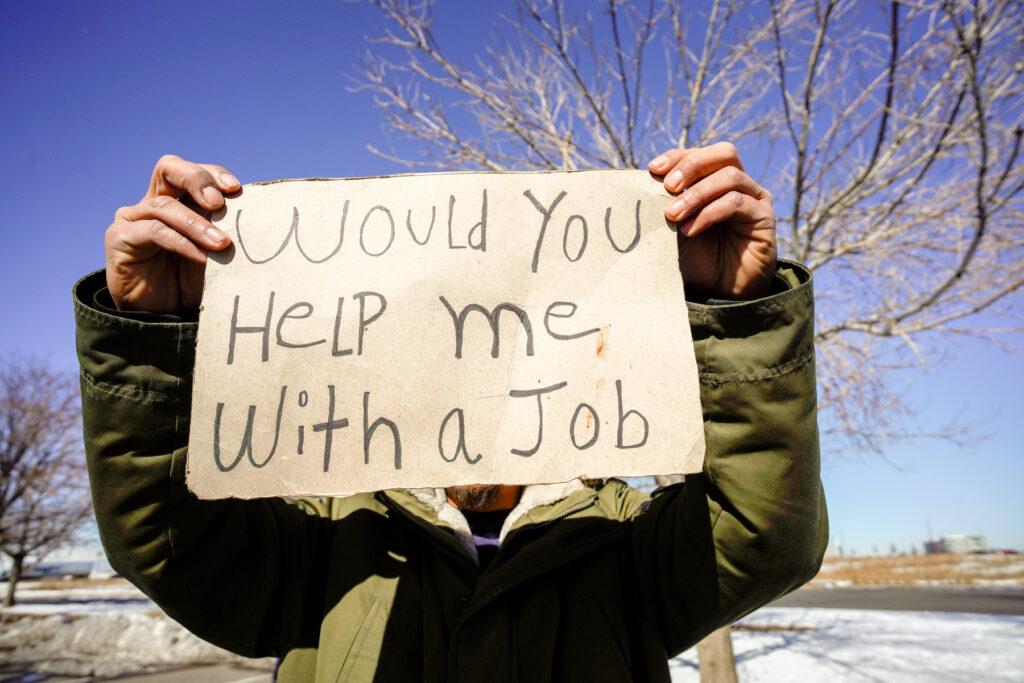
Warner: Will you speak to the other economic benefits you think the US would reap if that paradigm shift that you’ve described occurred?
García Hernández: Every new worker is also a new consumer. The economy of Colorado or the United States is not a fixed pie that doesn't get any bigger. Instead, we know that at times economic activity contracts, and other times it expands. A big part of that is how many people are participating in the economic world. The more people that we have working, the more people that we have consuming.
The reality is that the same people who are helping to build our housing, to pick our crops, to educate our future workers — because they're also operating as professors — to take care of our sick, working as nurses and doctors — these individuals are contributing to the economic vitality of every community across this country.
And we are not making sufficient babies in this country. We are getting older.
Warner: The chair of the Federal Reserve was asked about this recently. He said, "Over time, the U.S. economy has benefited from immigration, and in the last year, a big part of the story of the labor market coming back into better balance is immigration returning to levels that are more typical of the pre-pandemic era." So, should there be a test to decide who comes to the U.S., and what should it be?
García Hernández: I actually don't think absolutely everyone should be able to come here. I think that there are some key components to being welcomed in the United States, and first is: Do you actually believe and value some of the core principles of our democracy? Because the United States is not a country founded on a shared racial identity, or a shared religious identity, or a shared linguistic identity. It is a country founded on a shared commitment to democratic self-governance.
So what I want is to see people truly immersed and truly committed to furthering this messy experiment in democracy that we call the United States of America. Are you willing to give your time, your energy, to making this experiment in democracy come to life?
You can test that by asking whether people are engaging in the political process, and working alongside their neighbors, their coworkers, and in instilling in their relationships at the most local level, pressuring elected officials to fix the potholes, to encourage the city to plow more often in the winter, whatever it is. Are you engaging with your church? Are you engaging with the public school system that your kids are involved in? We can measure this, and in fact, we do on a regular basis measure this.
Warner: You also say that not everyone will want to come.
García Hernández: Not everyone wants to come to the United States. We often talk about the United States as if it's obvious that this is the country that everyone hopes to make a life in. But the reality is that most people don't want to leave home, and if they have to leave home, they prefer to go somewhere that's closer. The United States is full of opportunity, but it's also full of trouble. It's also really hard to get here. In order to actually make the migration, you have to have access to money. And so the reality is that lots of people are not in a position to come here even if they wanted to come here.
Warner: There are 11 million people living undocumented in the U.S. today. Many of them still pay income tax, and of course, they're subjected to sales taxes. To your point, people are coming anyway. The question is whether to allow them to do it legally, in which case more people might pay income taxes. Why doesn’t this get talked about?
García Hernández: I think they would pay more in income taxes if they were given authorization to work legally, because they would be paid more. Instead of getting paid under the table, they would get paid above board, and as a result, they would make, at the very least, the minimum wage.
It's convenient for elected officials to talk about immigration in this demonic, vilified manner as if it's a national security threat, and as long as there is nothing new being done to tackle immigration policy, politicians can always count on having immigration as a useful tactic to turn to when they want to rally their base.
Warner: You've called your own ideas ‘radical.’ They're certainly outside of today's political debates about immigration. Are they realistic?
García Hernández: I think the approach to immigration policy that we hear out of Washington and out of state houses around the United States today is grounded in a fantasy. It's grounded in a myth that we can control migrants through more police forces and that we can scare away others from making the journey to the United States.
I'm advocating for immigration policy that is grounded in the reality that people will be coming to the United States, and that so long as some people view the United States as a place where there is the opportunity to start life anew, to build the economic prosperity that is not available to them at home, to give their children the safe future that all parents dream of, then people will continue to come to the United States.
Warner: I hear you saying that the U.S. is almost married to this thing that isn't working. Why do we keep putting good money after bad as you see it?
García Hernández: I think that politicians are wedded to the idea that the best and only possible solution to immigration is more policing. But for those of us who are embedded in migrant communities who work with migrants on a regular basis, what we see is that migrants are already here. Migrants are part of the families that are already here. There are some people who are citizens and some people who have only been here for a few weeks or a few months, and that is not going to change no matter how many border patrol agents we hire, no matter how tall the walls are that we build or how treacherous the journey across the desert is. And so what I hope that politicians will do is have the political courage to reimagine the policy options that they continue to debate over and over again.
Warner: Why don't we hear that from Democrats? It seems like the entry point for them and something that some of their voters have been asking for.
García Hernández: Because Democrats are running scared when it comes to immigration. Republicans have successfully weaponized immigration policy to beat Democrats over the head, and the Biden administration is hoping that they can tangle with Republicans on toughness as if it were still 1994 or 1995. The Joe Biden of January 2024 sounds a lot more like the Joe Biden of 1994 than he does of the Joe Biden who was on the campaign trail in 2020, talking about how he was going to adopt a humanitarian approach to immigration.
Warner: This conversation we're having is certainly not just theoretical. There are thousands of people now in Metro Denver and other parts of Colorado who've come across the border and want to find work here. Some have walked thousands of miles through treacherous conditions, and they want to reestablish their lives, but their legal options are limited. Do you think a lot of the people who have come over the past year-plus will end up living as undocumented folks in the US, joining the 11 million people already in that situation?
García Hernández: I'm certain that lots of the people who have arrived recently will find that there are no legal options for them to reside in the United States lawfully. Asylum law is born of World War II and the horror that was the Holocaust, and as a result, it's a very narrow promise of protection — one that doesn't aim to keep everyone from being killed, or maimed, or murdered, or raped, but in fact only aims to protect people from suffering persecution for one of five very specific reasons.
And even for folks who come to the United States and apply for asylum, they cannot work for a long time after applying. They have to wait a minimum of 150 days after applying for asylum before they can even apply for work authorization. How are they supposed to feed themselves, clothe themselves, and put a roof over their head during the six months or longer before the government decides whether they're going to be allowed to work in the United States?
Warner: Then it creates a bit of a vicious cycle, doesn't it? It feeds the fear that people are coming and “lurking” on the streets.
García Hernández: To an extent, it's true that there are people on our streets. They're begging for money and work, right? They're offering to clean my windshield for whatever amount of cash I'm willing to hand over.
This is why I want to see cities like Denver, states like Colorado take a creative and innovative approach to hiring migrants, because the federal law that says people who do not have the government's permission to work cannot be hired is quite clear that it applies to private employers and to federal government agencies, but it is absolutely silent about whether it applies to state or local governments.
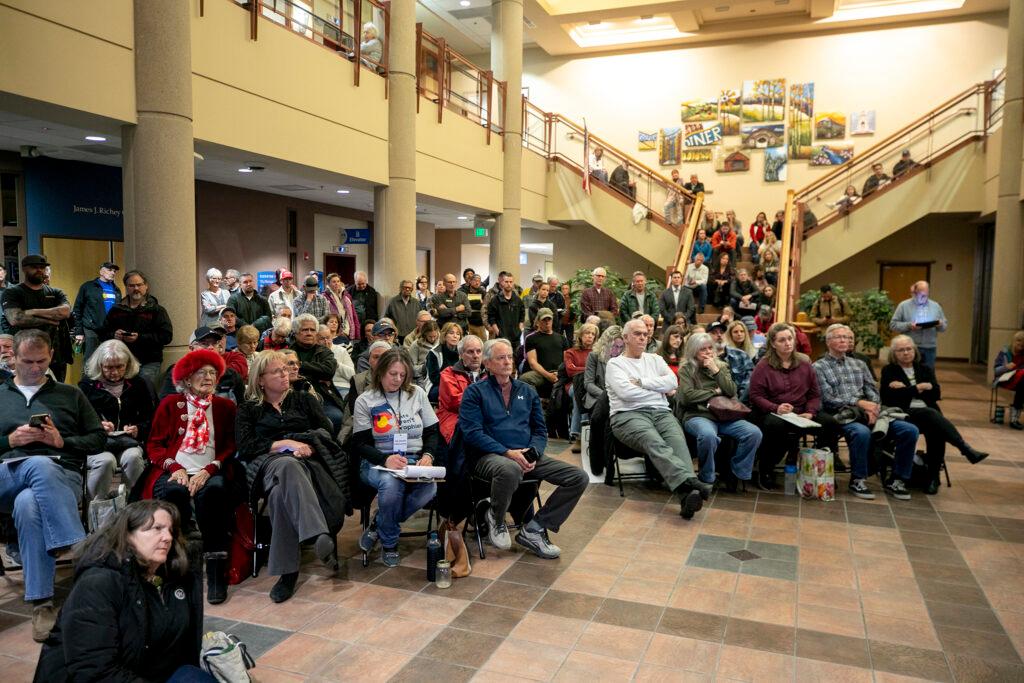
Warner: What role do you think that municipalities could play?
García Hernández: The city of Denver and any major metropolitan area in this country hires people to do all kinds of things, from making important policy decisions at the highest level of the mayor's office to fixing up our streets and picking up the trash, and what I'm suggesting is that cities like Denver take a close look at that federal law signed in 1986 by President Reagan and note the fact that it does not say that it applies to states or to cities. It does not say that cities cannot hire people unless they have the federal government's permission.
So the possibility is there under the existing laws for Denver to go out and open up the ranks of its employees to people who are in the country, whether or not they have the federal government's permission to work.
What I'm suggesting is that instead of spending money on charity and social services, we spend money on payroll, bring people onto the city's payroll to do all the jobs that the city desperately needs to be done in neighborhoods around the city so that those people then become the next layer of consumers in Denver and across the metropolitan area to boost the economy rather than take some money out of it.
Warner: Could you share one story from your book about people who have suffered because of the immigration system, and in your view, needlessly so?
García Hernández: I write about my dear friend Pati, who is a Brooklyn social worker who has devoted her career to helping high school students in a New York City public school, but who decades before I met her was just a little girl who walked to the dusty hills east of Tijuana, waited for the cover of darkness, and, with her hands wrapped inside her mother's, started walking north.
They walked across the international boundary, and as they did, they violated federal immigration law, and that night, they actually got picked up by the border patrol agents and they got deported. A few days later, they tried again, and eventually, they made their way to the Central Valley of California, where Pati grew up, and the life that her mother hoped for began to become real. Eventually, both Pati and her mom became U.S. citizens. Pati got two Ivy League degrees. She devoted her life, as a social worker, to helping the next generation of young people figure out how to navigate this crazy world that we all live in.
But none of that can undo the fact that decades earlier, Pati and her mom violated federal immigration law. That's punishable by up to six months imprisonment. And after getting deported, she came back, and that's illegal reentry, which is a felony punishable by up to two years of imprisonment. These days, we might also hear politicians say that her mom was actually smuggling somebody, Pati, into the United States. So there's a whole host of immigration law violations that are the entire reason why Pati was able to make a life in this country and brought her into my life, and into the lives of these young people in New York City who she's been helping for almost 20 years.
None of it would've been possible had her mom not decided that she was going to do whatever it took to take advantage of the opportunities that exist in the United States, and I'm glad she did.






